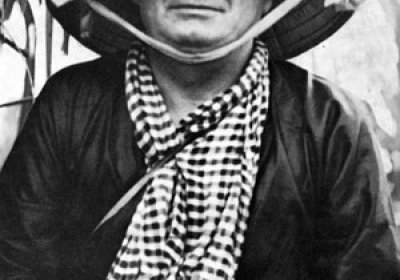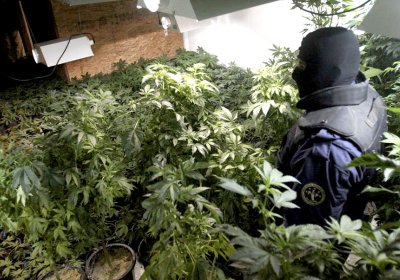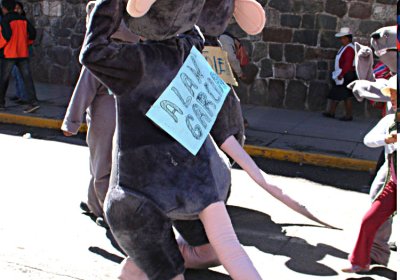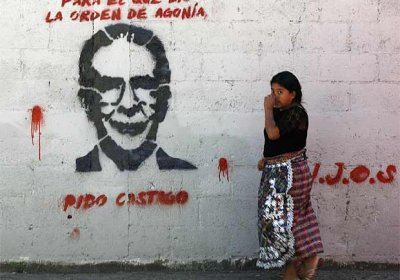The persecution of WikiLeaks founder Julian Assange is unfortunately nothing new in the history of Australia or other Western nations. The outward appearance of democratic government often masks a darker, anti-democratic reality.
Dissenters and truth-tellers such as Assange, who dare to challenge the official version of events, have been subjected to acts of bastardry in the past.
The Australian government’s treatment of Assange today invites comparison with the earlier case of the Australian socialist journalist Wilfred Burchett, who died in 1983.
David T. Rowlands
In Mexico, a war involving rival drug gangs, law enforcement agencies and the national army has officially claimed 23,000 lives since 2006.
This figure does not include the many thousands of innocent people who have been “disappeared” by police and army units.
The violence can be directly attributed to the corrosive impact of the North American Free Trade Agreement (NAFTA).
NAFTA was signed on January 1, 1994 between the United States, Canada and Mexico with the aim of removing trade and investment barriers between these nations.
Peruvian President Alan Garcia, who last year ordered the brutal massacre of protesting Amazonian tribespeople, has once again resorted to violence — this time in person.
Visiting Edgardo Rebagliati Hospital in Lima, on October 9, Garcia encountered 27-year-old Ricardo Galvez, who shouted “corrupt” at the president. Eyewitnesses say Garcia flew into an uncontrollable rage and forcefully struck the volunteer worker in the face.
Members of Garcia’s entourage landed follow up blows, knocking a defenceless Galvez to the floor where he was subjected to further mistreatment.
Despite carefully-crafted appearances to the contrary, projects like the Extractive Industries Transparency Initiative (EITI) are no solution to the problems that confront the colonised “developing” world.
Endemic corruption, environmentally unsustainable development and spiralling income inequality are inseparable from the process of capitalist global expansion, which EITI and other corporate-funded front organisations only serve to legitimise.
One of the greatest living exponents of Peruvian musica criolla (creole music), Eva Ayllon, performed at the Sydney Opera House on September 25. Finding my seat, I felt as if I’d walked into an exuberant family gathering full of animated conversation, laughter, waving and group photography.
September 18 marks the 40th anniversary of the death of US musician Jimi Hendrix, widely regarded as one of the greatest rock guitarists of all time.
Hendrix’s identification with progressive politics embodied the ferment of the late 1960s, with songs like “If Six Was Nine” (“I’m gonna wave my freak flag high”), “I Don’t Live Today” (about the plight of Native Americans) and the visceral anti-war tone poem “Machine Gun”.
On June 19, six executives — the entire board of Australian mining corporation Sundance Resources — were killed in a plane crash in the Republic of the Congo. Australian politicians and the corporate media emphasised the tragedy of their untimely deaths, showering praise on the deceased.
On June 1, part-Peruvian US actor and indigenous rights activist Q’orianka Kilcher was arrested for “disorderly conduct” after chaining herself to the White House fence while Peruvian President Alan Garcia met with US President Barack Obama.
Garcia refers to the Amazonian indigenous peoples of his country as barbaric savages. Kilcher had doused her body in black paint, symbolic of the oil killing the Amazon and its people.
Right-wing candidate Juan Manuel Santos won the second round of the Colombian presidential elections on June 20. This re-affirms Colombia’s position as the US’s chief proxy in the region, playing a similar role to that of Israel in the Middle East.
Santos won 69% of the run-off election against Green Party presidential candidate and former Bogota mayor Antanas Mockus. However, IPS said on June 21 that, with just 45% of registered voters taking part in the poll, Santos won with a mere 30% of potential votes.
Recently declassified documents from US archives have shed further light on the extent of US complicity in Guatemalan human rights crimes, one of Latin America’s most brutal examples of population control.
The hard-working farmers of Dos Erres, in Peten department, had never asked for much — just a few acres of recently-cleared land from which to scratch a meagre living in a country racked by violence.
The conspicuous presence of barbed wire in Australian immigration detention centres, such as Rudd’s newly re-opened Curtin detention centre, is a reminder of the inhuman pedigree of these grim despair factories.
It is no accident that barbed wire — or the “devil’s rope” as the First Nations people of North America called it — has accompanied and facilitated many of the worst crimes against humanity of the modern era.
In every corner of Greece, popular anger over the government’s latest neoliberal assault on job security, pensions and social services has lead to a series of general strikes involving hundreds of thousands of militant workers.
- Previous page
- Page 6
- Next page










